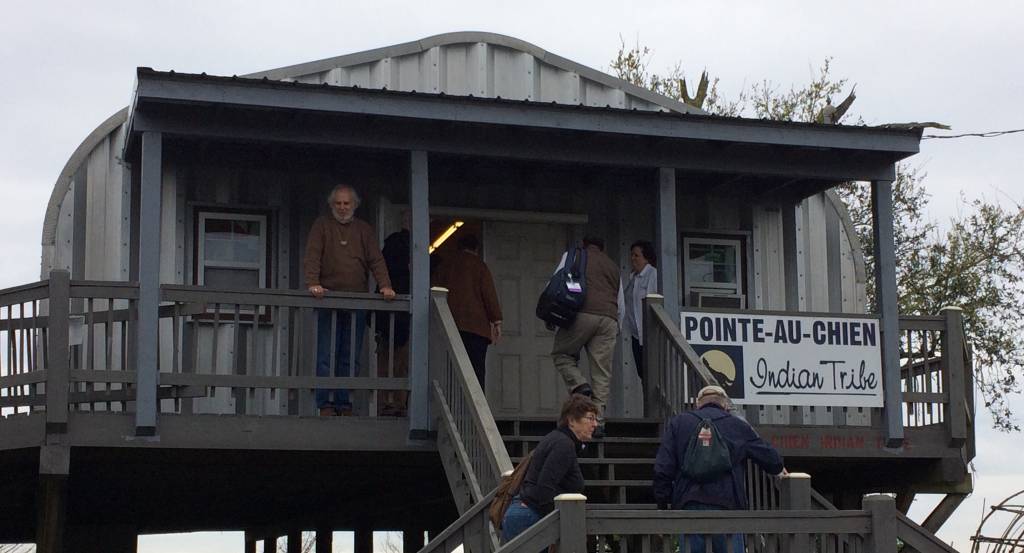By Sue Smith
Sue Smith is a member of the Advisory Committee on Social Witness and Stated Clerk of Monmouth Presbytery. She is grateful to her colleagues in the Coalition for Healthy Ports for teaching her everything she knows about environmental racism.
I was invited to the March Mission Responsibility Through Investment Committee (MRTI) meeting. Instead of their usual meetings with corporate executives, they were meeting with frontline communities near New Orleans suffering from the effects of environmental degradation and climate change. Why was this the focus of an MRTI meeting? The committee is framing its work with the overture to the 223rd General Assembly: On Responding to Environmental Racism and to Promote Environmental Justice, which calls on the church to listen to the voices of those most impacted by pollution, those living in environmental justice communities (EJ), communities of color and of poverty, and to include responses to the voices most directly impacted by environmental racism.
Over the week we met with tribal villagers from Isle de Jean Charles, Pointe au Chien and Grand Caillou. While many Americans and Presbyterians are fairly distanced in their day to day lives from daily impact of climate change, here is a radically different story. Because of climate change, their land is literally disappearing from under their feet due to sea level rise. Their homes, their way of life, all vanishing. The government is funding a move from Isle de Jean Charles. Typical when money and a frontline community is involved, the voices of those being forced to move are not listened to. And typical of government funding, red tape and bureaucracy reigns.
We also met with people living in Plaquemines Parish, hard hit by Hurricane Katrina and still recovering. Commercial fishing, a way of life in the parish, has been negatively impacted. Rev. Tyrone Edwards said that they are rebuilding “despite environmental racism”.
As I experienced all of this, I was hard pressed to compare the EJ issues in Louisiana to the EJ issues in New Jersey. Both are feeling the effects of climate change and environmental impacts. However, there are some key differences. In New Jersey, rebuilding after Sandy was helped by national and regional corporations that showed up to help their own businesses recover. I did not see any presence of national and regional corporations in Plaquemines Parish to help with recovery. In New Jersey, EJ communities suffer most from particulate matter in the air, pollution from commerce. In Louisiana, it is the loss of land and loss of a way of life.
Then I remembered what Dr. Nicky Sheats said at a local Sierra Club meeting. The ‘enviros’ (large environmental organizations, mostly white, well-funded) care most about big-picture environmental issues. The EJ organizations (small, mostly people of color, not well-funded) care most about community. That is the link between environmental racism in Louisiana and New Jersey – caring about community.
EJ communities care most about effects on community. The Native American tribes trying to create sustainable communities in a new land. The people of Plaquemines Parish rebuilding, where the newest and largest buildings are the community center and the high school. And the NJ communities that care about the health of the residents of their communities. All of these communities need to have their voices heard.
As Christians, community matters. Jesus traveled in community. Our congregations are community. Those of us benefiting from white privilege can learn a lot from frontline communities in our environmental work. As we work to confront climate change, yes we can talk about big picture, long-term changes, public policy, corporate strategies, and even personal changes we can all make to lower our carbon footprint. However, in all these things and above all else, we should remember why we do any of this. We do it for community.
